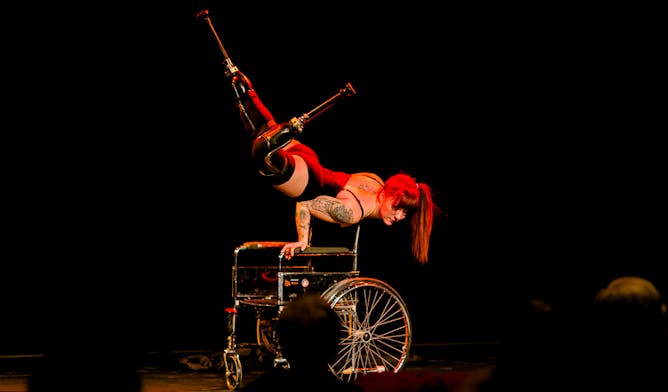|
Facebook has announced it will ban its users from posting what’s known as “deepfake” videos that are manipulated to appear real. There’s some skepticism about whether that will actually put an end to the practice of deepfakes on the world’s most popular social media platform. Today in The Conversation Canada, Nadia Naffi of Université Laval explains how deepfakes have been used effectively as
propaganda and why “detecting disinformation powered by unethical uses of digital media, big data and artificial intelligence, and their spread through social media, is of the utmost urgency.”
We also look at research on PhD graduates from the humanities and why it’s difficult to track those who haven’t manage to land a job in academia and how a different style of theatre – called “relaxed performance” – can be more enjoyable for both those on stage and the people in the audience.
Regards,
|

Facebook announced Jan. 6 it will remove videos edited to mislead in ways that ‘aren’t apparent to an average person,’ and are the product of artificial intelligence or machine learning. Here, Facebook CEO Mark Zuckerberg testifies at a hearing at the U.S. House Financial Services Committee on Capitol Hill in Washington, Oct. 23, 2019.
AP Photo/Andrew Harnik
Nadia Naffi, Université Laval
The abilities to detect and analyze deepfake videos is of the utmost urgency. Deepfakes are a serious threat to people's security and our democratic institutions.
|

Canadian universities need to reform the culture of the humanities so that careers outside the university are seen as just as valuable as tenure-track jobs.
(Annie Spratt/Unsplash)
Paul Yachnin, McGill University
With the support of universities, PhD graduates working beyond the academy could bring their knowhow into PhD seminars or classrooms to help current students expand their career horizons.
|

Erin Ball performs at Cripping the Arts at Harbourfront Centre in Toronto, in January 2019. She balances with her hands on the arms of an old wheelchair. Behind her, two long pegs extend from her prosthetic legs.
(Michelle Peek Photography for ReVision)
Carla Rice, University of Guelph; Kayla Besse, University of Guelph
Rustle your program without getting a glare at a relaxed performance — an art form in synch with the growing field of disability arts.
|

Il est essentiel que les équipes de formation et de perfectionnement acquièrent de nouvelles compétences et se requalifient pour aider les organisations à s'engager avec succès dans une transformation numérique.
Shutterstock
Nadia Naffi, Université Laval; Ann-Louise Davidson, Concordia University; Houda Jawhar, Concordia University
Pour que la transformation numérique soit gagnante, chaque organisation devrait faire de l'amélioration des compétences de ses équipes de formation sa résolution essentielle pour 2020.
|
Environment + Energy
|
-
Sunanda Creagh, The Conversation; Molly Glassey, The Conversation; Wes Mountain, The Conversation
We pulled four before-and-after NASA satellite images and asked bushfire researcher Grant Williamson to reflect on the story they tell.
|
|
Health + Medicine
|
-
Ute Feucht, University of Pretoria; Jeannette Wessels, University of Pretoria
South Africa has set ambitious targets to eliminate mother to child transmission of HIV completely. It will require innovative strategies and continuous quality improvement to achieve them.
|
|
Politics
|
-
David J. Wasserstein, Vanderbilt University
If the US makes good on the president's threat, Iran's heritage won't be the only thing damaged. Washington's reputation would also take a hit.
|
|